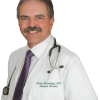(RxWiki News) Like food, water and oxygen, sleep is something you just can’t do without — but are you getting enough?
A National Sleep Foundation (NSF) panel has released new recommendations to answer that question. The panel, which included experts in fields like pediatrics, neurology, anatomy, physiology and — of course — sleep, revised the recommended amounts of sleep and added two new age ranges.
Robert S. Rosenberg, DO, FCCP, medical director of the Sleep Disorders Center in Prescott Valley, AZ, told dailyRx News that the consequences of insufficient sleep include "obesity, elevated blood sugar, depression, anxiety, cognitive dysfunction, workplace accidents, motor vehicle accidents, a higher incidence of hypertension, stroke and heart attack."
However, Dr. Rosenberg, the author of "Sleep Soundly Every Night; Feel Fantastic Every Day," said he thought the new sleep guidelines would help patients — who often ask him about recommended amounts of sleep — combat those problems.
The expert panel, chaired by Max Hirshkowitz, PhD, reviewed more than 300 studies on sleep and used the findings from those studies to make their recommendations.
“The NSF has committed to regularly reviewing and providing scientifically rigorous recommendations," Dr. Hirshkowitz, of the Baylor College of Medicine in Houston, TX, said in a press release. "The public can be confident that these recommendations represent the best guidance for sleep duration and health.”
In past recommendations, the NSF identified a range of sleep duration for different age groups. Infants, for instance, need more sleep than teens. Newborns sleep the most of any age group. The classic jokes about teens who sleep until noon on weekends may have a basis in fact. Teens do need more sleep than adults, and the new NSF recommendations take that into account.
Recommendations varied from 14 to 17 hours of sleep in 24 hours for newborns to seven to eight hours for adults aged 65 and older.
The panel added two new age groups to the recommendations. Younger adults, aged 18 to 25, should get seven to nine hours of sleep. Older adults — those aged 65 and above — were the second new age category.
People differ in their sleep requirements, however. Recognizing that fact, the NSF added a new range called “may be appropriate for some individuals.” For instance, six hours of sleep may be appropriate for young adults in some cases.
The NSF also noted sleep durations that were not recommended in each age category. Adults aged 26 to 64 should not get less than six or more than 10 hours of sleep for optimum health. Teens aged 14 to 17 should not get less than seven or more than 11 hours.
People should make sleep a priority, just like eating a healthy diet and getting sufficient exercise, the NSF panel said. Dr. Hirshkowitz and team said people should try to keep the same schedule throughout the week — even on weekends.
People should limit or avoid alcohol and caffeine, turn off electronics before bedtime and make sure the bedroom environment is conducive to sleep, according to the new recommendations. Daily exercise can also improve sleep. People who have symptoms like snoring, leg cramps or chronic insomnia should consult a doctor.
The new recommendations were published online Feb. 2 in Sleep Health: The Official Journal of the National Sleep Foundation.
The NSF funded the expert panel. The authors disclosed no conflicts of interest.








